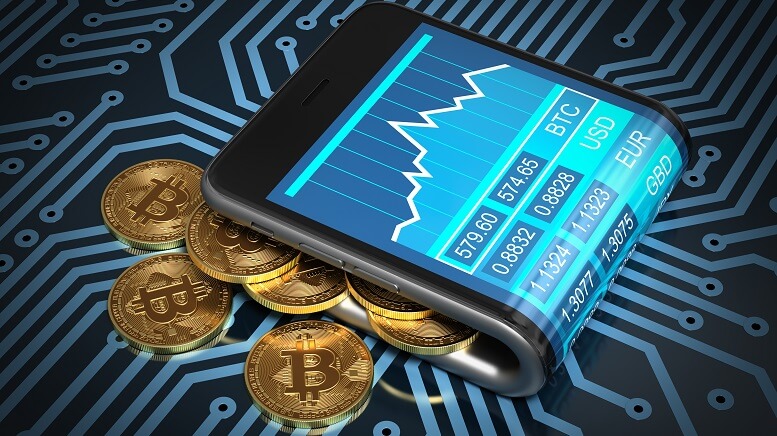How to Protect Your Bitcoin Wallet

Bitcoin is a hot commodity lately. This cryptocurrency is usually at the top of experts’ and users’ lists of recommendations for investments in the digital world. If you’re thinking about using Bitcoin or have already started your crypto journey, there are steps you can take to secure your currency. Here’s how to protect your Bitcoin wallet.
1. Use a Hardware Wallet
There are a few types of cryptocurrency wallets. Hard wallets connect to the internet for you to access at any time. This constant internet connectivity comes with certain cyber risks, though. If you want more protection, use a hardware wallet.
Hardware wallets are “cold,” meaning they do not connect to the internet, but you can still receive funds at any time. The disconnect makes it harder for cybercriminals to hack or breach your Bitcoin. Trezor and Ledger offer various hardware wallets that store your currency in an external, USB-like device.
2. Keep Your Private Key Offline
When you use a hardware wallet, it doesn’t actually store all your cryptocurrency. Instead, it stores a private key. This private key corresponds to a public key that includes certain amounts of Bitcoins, giving you the correct balance.
You must keep this private key secure. You can keep it offline by writing it down on a piece of paper and storing it in an emergency disaster kit that only you have access to. The more secure and offline it is, the less you have to worry about it.
3. Encrypt Your Wallet
Encrypting your wallet is a helpful step to take. You can start simple with two-factor authentication and go from there. Any form of encryption will help. Two-factor authentication helps with verifying your identity in two ways so that cybercriminals have a harder time breaching your wallet. You can also include encryption software if you want extra protection for your Bitcoin.
4. Keep Your Currency in Multiple Places
Don’t put all your eggs in one basket. The phrase rings true for cryptocurrency. If you have all your digital currency in one wallet, you have a higher chance of losing more. If you place your funds in different wallets, though, you have a better chance of protecting your assets. When saving, especially, you’ll want to keep your Bitcoin safe however you can.
5. Enact Smaller Transactions
If you’re a big Bitcoin spender, you might want to step back. High-value transactions and trades can draw attention from cybercriminals. If they see that you have assets to spend, they may be more likely to target your funds. Of course, you should spend your cryptocurrency however you’d like. Just keep in mind that you’ll need more protection.
>> Bitcoin Halving: How the Miners are Faring So Far
6. Use a Secure Internet Connection
Using the right internet connection is an easy way to protect your Bitcoin wallet. Of course, your home internet connection is likely a safe option since it’s secure and isolated. However, you should keep in mind that public internet connections can be risky.
Public Wi-Fi isn’t always secure, and since many people use it, cybercriminals may have an easier time accessing your wallet. When on public Wi-Fi, it’s best to not have an active wallet. If you do make transactions, strongly consider using a reputable, logless, paid VPN service.
7. Keep Your Finances a Secret
Be cautious about who you share your Bitcoin status and private key with. You’ll likely only want to keep those numbers to yourself unless you have a partner you’re willing to share them with. Otherwise, the fewer people who know, the better. Think of cryptocurrency as a real bank account. You don’t want people knowing your PIN number or account status—and your private key is the same.
8. Use Antivirus Software
Viruses are a digital plague in their own way. Cybercriminals use them to steal information and finances from vulnerable accounts. Antivirus software can help, though. Since cyberattacks are frequent and often come in the form of viruses and malware, you’ll want protection. With the most up-to-date features, antivirus software can do just that.
9. Watch Out for Phishing
Like viruses and malware, phishing is another form of cyber scamming. Certain criminals use emails and links to scam users into giving up private information about their wallets. Sometimes, phishing scams can link to viruses and malware, too. Watch out for suspicious content—it’s better to be safe than sorry.
10. Double-Check the Recipient
As you carry out your transactions, make sure you’re sending your Bitcoin to the right person. Scammers may try to skew transactions or trick you into giving your money elsewhere. You can get software or programs to help detect errors, as well. Be sure to vet your transactions and partners thoroughly before any money changes “hands.” Sometimes, it can be hard to recover your Bitcoin currency.
11. Back Up Your Wallet
Last but certainly not least, you’ll want to back up your wallet. A backup never hurts and always comes in handy if you need it. There are different ways to back up your wallet, so choose the one that works best for you. Then, you have what you need to fully protect your Bitcoin wallet if something goes wrong.
A Safe Crypto World
As cryptocurrency grows in popularity, you can expect some changes to come about. Keep an eye on the security trends and follow the best practices as they emerge. Staying ahead of the curve will bring you the best Bitcoin protection to stay safe in the cyber world.
This article was curated through CryptoCurrencyNews’ Contributor Program. If you would like to write for us, send us your submission!
Featured image: DepositPhotos © 3DSculptor